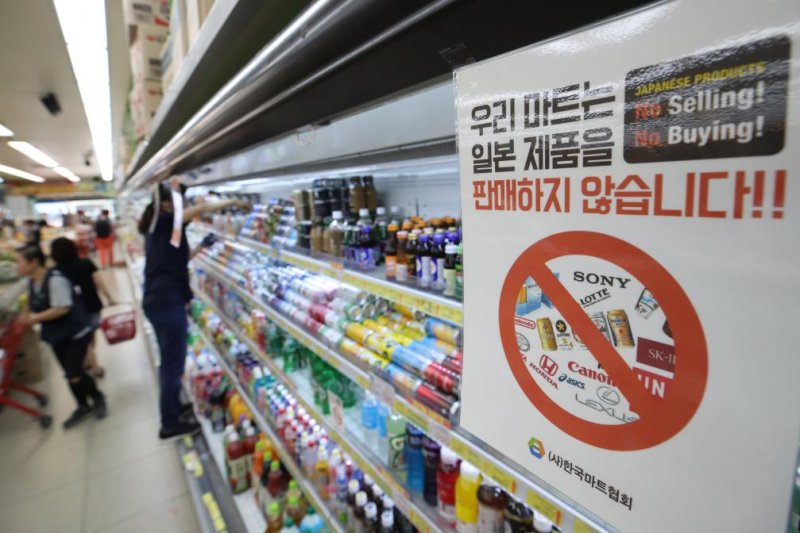A retail outlet posts a notice stating that it is neither selling nor buying Japanese products amid signs of the spreading of a boycott campaign, in Seoul, South Korea. File Photo by Yonhap/EPA-EFE
July 25 (UPI) -- Japanese beer company Asahi is at the center of a growing controversy in South Korea, following Asahi's decision to sell beer using ingredients from Fukushima.
Regional newspaper Fukushima Minpo and other news services reported Thursday Asahi's plant in Fukushima launched a limited edition beer, made from rice in the area not far from the nuclear disaster zone.
Asahi's new beer began to be available on shelves on Tuesday in grocery chains and convenience stores in Fukushima Prefecture, and are being marketed as "Asahi Super Dry Fukushima Factory Limited Edition" beer, according to reports. Product labels reportedly read, "Pride of Fukushima."
The beer launch comes at a time when Japan and South Korea are locked in a trade dispute, following a Japanese decision to restrict exports of key chemicals used in manufacturing South Korean tech products.
South Korean activists have called for the boycott of Japanese beverages, including beer.
News of Asahi's limited beer drew public criticism in Korea, the Korea Times reported Thursday.
Online South Korean commenters derided the product launch, calling it "radiation marketing." Others raised fears of contamination at the beer plant.
Tokyo Electric Power has previously struggled to contain the growing volume of contaminated water from damaged nuclear reactors at the Fukushima site.
In 2017, about 100 to 400 tons of contaminated water was being generated daily because of continued flow of groundwater from outside the site. Radioactive contamination may have been leaking from Japan's paralyzed nuclear plant in Fukushima, and the water could have been seeping out for months.
Clean up work remains unfinished in the region.
The Yomiuri Shimbun reported Thursday the Japanese government has decided to begin the removal of nuclear debris at reactor No. 2 in Fukushima, but work won't begin until 2021.















